Home>diy>Building & Construction>How To Learn Construction Trades
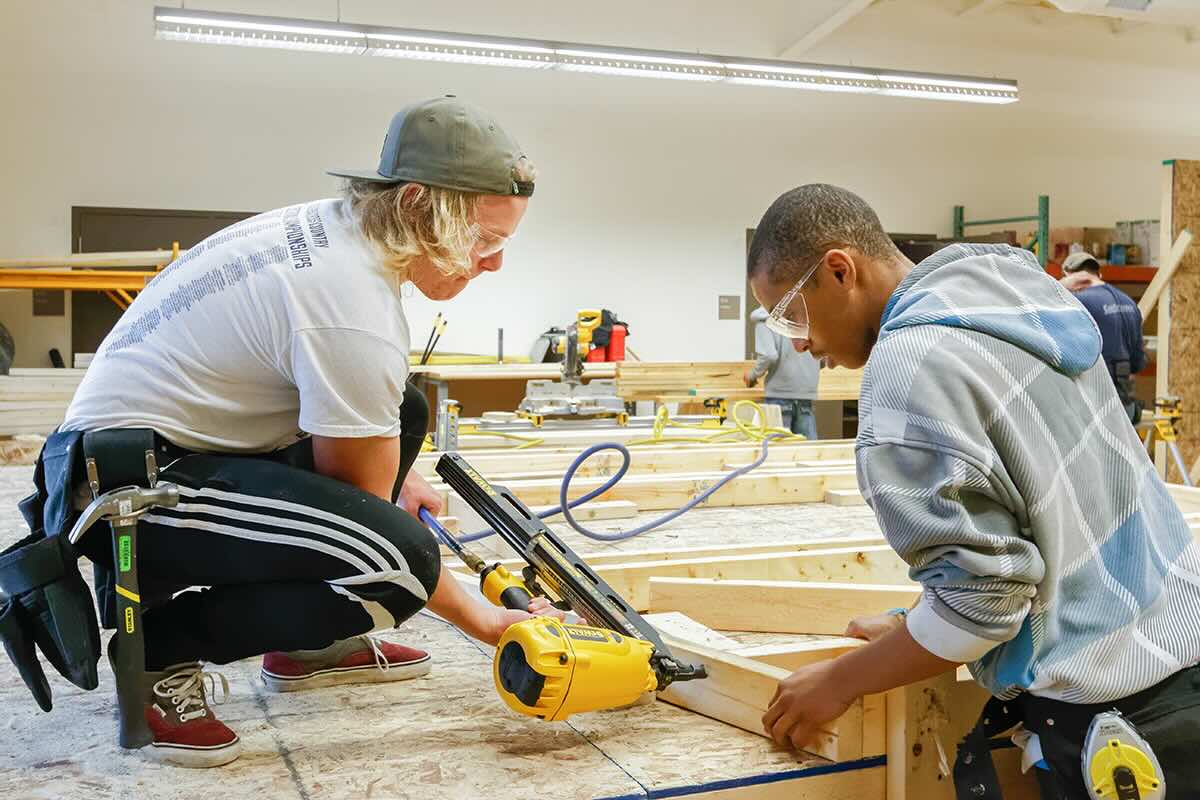

Building & Construction
How To Learn Construction Trades
Modified: October 18, 2024
Learn the essential skills and techniques needed for building construction trades with our comprehensive guide. Get hands-on experience and expert guidance to master the art of construction.
(Many of the links in this article redirect to a specific reviewed product. Your purchase of these products through affiliate links helps to generate commission for Storables.com, at no extra cost. Learn more)
Introduction
Learning a construction trade can open up a world of opportunities for individuals interested in building and construction. Whether you’re looking to start a new career or gain valuable skills for personal projects, the construction industry offers a wide range of trades to explore. From carpentry and plumbing to electrical work and masonry, there are numerous paths to choose from.
One of the key benefits of learning a construction trade is the high demand for skilled workers in the industry. With growing construction projects and infrastructure development, there is a constant need for professionals who can contribute their expertise. By acquiring the necessary skills, you can enhance your employability and create a stable and fulfilling career.
Another advantage of pursuing a construction trade is the potential for financial growth. Skilled tradespeople are often in high demand and can command competitive wages for their services. Moreover, as you gain experience and specialized knowledge, you can explore opportunities to become self-employed or start your own contracting business.
Beyond financial rewards, construction trades also offer the satisfaction of creating tangible and lasting structures. As a tradesperson, you contribute to the development of buildings, bridges, and infrastructure that serve communities for years to come. The sense of accomplishment and pride in seeing your work take shape is unparalleled.
Before embarking on your journey to learn a construction trade, it is crucial to choose the right trade that aligns with your interests, strengths, and long-term goals. Take the time to research different trades and understand the skill sets required for each one. This will help you make an informed decision and set yourself up for success.
In the following sections, we will explore the process of choosing the right construction trade, finding suitable programs or apprenticeships, acquiring the necessary skills and knowledge, understanding the tools and equipment used in construction trades, practicing safety protocols, learning basic techniques and methods, gaining hands-on experience, and building a rewarding career in the construction industry.
So, get ready to put on your work boots, grab your tools, and dive into the exciting world of construction trades!
Key Takeaways:
- Choosing the right construction trade is crucial for a fulfilling career. Research, self-assessment, and guidance from professionals can help you make an informed decision aligned with your interests and strengths.
- Gaining hands-on experience through apprenticeships, mentorship, and volunteer work is essential for mastering construction trades. Practical application allows for skill refinement and confidence development.
Read more: How To Learn Construction
Benefits of Learning Construction Trades
Learning a construction trade offers a multitude of benefits, both personally and professionally. Here are some of the key advantages:
- Job Security: The construction industry is known for its consistent demand for skilled workers. From residential housing projects to commercial developments, there is always a need for construction professionals. By learning a trade, you can secure stable employment and minimize the risk of job instability.
- High Earning Potential: Skilled tradespeople often earn competitive wages due to the specialized nature of their work. As you gain experience and expertise in your chosen trade, you can expect your earnings to increase. Additionally, many construction trades offer the opportunity for overtime pay, bonuses, and benefits.
- Practical Skills: Learning a construction trade equips you with practical skills that can be applied in a variety of settings. Whether you’re building a new structure or renovating an existing one, your skills will always be in demand. These skills are not only valuable in the construction industry but also transferable to other sectors, such as property management or facilities maintenance.
- Creative Outlet: Construction trades provide an excellent opportunity to express your creativity. As you work on different projects, you can showcase your craftsmanship and attention to detail. Whether it’s designing and building custom furniture as a carpenter or creating intricate tile patterns as a mason, construction trades allow you to bring your artistic vision to life.
- Hands-On Work: If you prefer an active and hands-on work environment, construction trades are an ideal choice. Rather than being confined to a desk, you’ll be out in the field, working with your hands and engaging in physical labor. This can be rewarding for individuals who enjoy being active and experiencing tangible results from their efforts.
- Opportunities for Entrepreneurship: By learning a construction trade, you have the potential to become your own boss. With the right combination of skills, experience, and business acumen, you can start your own contracting or construction company. This allows you to have full control over your projects and potentially increase your earning potential.
These benefits of learning a construction trade highlight the value and potential for growth in this industry. Whether you’re seeking financial stability, job satisfaction, or the opportunity to unleash your creativity, choosing a construction trade can be a rewarding and fulfilling career path.
Choosing the Right Construction Trade
When it comes to learning a construction trade, selecting the right one is crucial. It’s essential to choose a trade that aligns with your interests, aptitude, and long-term goals. Here are some steps to consider when choosing the right construction trade:
- Research: Start by researching different construction trades to get an understanding of the options available. Look for trades that pique your interest or resonate with your skills. Consider the nature of the work, required physical abilities, and the potential for growth in each trade.
- Self-Assessment: Take some time to assess your personal preferences, strengths, and interests. Reflect on the type of work you enjoy and what motivates you. Are you detail-oriented and enjoy working with your hands? Carpentry or cabinetry might be a good fit for you. Do you have a strong mathematical aptitude? Plumbing or electrical work could be a suitable choice. Understanding your strengths can help you choose a trade that maximizes your potential for success.
- Explore Apprenticeship Programs: Apprenticeship programs are an excellent way to learn a trade while gaining practical experience. Research apprenticeship opportunities in your area and find out which trades are available for apprenticeships. These programs usually combine classroom instruction with on-the-job training, providing a well-rounded learning experience.
- Consider Growth and Market Demand: Look into the current and projected market demand for different construction trades. Choose a trade that has a stable and growing demand, to ensure long-term job opportunities and security. Consider the construction projects in your area and industries that are thriving, such as residential, commercial, or industrial construction.
- Training and Certification: Determine the training and certification requirements for your desired trade. Some trades may require formal education or specific certifications, while others may rely more on hands-on experience. Consider the time and financial investment required to complete the necessary training for your chosen trade.
- Seek Guidance: If you’re still unsure about which construction trade suits you best, don’t hesitate to seek guidance from professionals in the industry. Reach out to trade associations, vocational training centers, or career counselors who can provide valuable insights and advice.
Remember that the right construction trade for you will ultimately depend on your individual circumstances and aspirations. Take the time to explore your options, weigh the pros and cons, and make an informed decision. Once you’ve chosen the right construction trade, you can embark on a fulfilling journey of learning and growth in the industry.
Finding a Construction Trade Program or Apprenticeship
When it comes to learning a construction trade, finding the right program or apprenticeship is essential. These opportunities provide valuable hands-on training, theoretical knowledge, and mentorship from experienced professionals. Here are some steps to help you find a construction trade program or apprenticeship:
- Research Local Training Centers: Begin your search by researching vocational training centers or trade schools in your area. These institutions often offer specialized programs for various construction trades. Look for programs that align with your chosen trade and have a good reputation for providing quality education and industry connections.
- Check with Trade Associations: Many trade associations have information on apprenticeship programs or can direct you to resources that can help. These associations are often connected with contractors and companies in the construction industry. Reach out to them for guidance on finding apprenticeships or training programs specific to your trade.
- Reach out to Local Unions: Trade unions are another valuable resource for finding apprenticeship opportunities. They often have established training programs and can provide information on the application process and requirements.
- Attend Career Fairs and Trade Shows: Career fairs and trade shows are excellent opportunities to connect with industry professionals and learn about training programs and apprenticeships. Look for events focused on construction and trades and come prepared with questions and a resume. Networking at these events can lead to valuable contacts and potential apprenticeship opportunities.
- Utilize Online Resources: There are numerous online resources dedicated to connecting individuals with trade programs and apprenticeships. Websites such as apprenticeship.gov and trade-specific directories can provide valuable information and help you find opportunities based on your location and chosen trade.
- Reach out to Local Contractors: Local contractors and construction companies often have their own apprenticeship programs or can recommend reputable training centers. Research and compile a list of contractors in your area and reach out to them to inquire about apprenticeships.
- Consider Nonprofit Organizations: Some nonprofit organizations offer construction training programs aimed at providing opportunities to individuals seeking to learn a trade. These programs may offer a combination of classroom instruction and hands-on experience, and can be a good option, especially for those facing financial constraints.
When exploring different programs and apprenticeships, consider factors such as program duration, curriculum, industry partnerships, and job placement rates. Look for programs that offer a comprehensive learning experience, including both technical skills and safety training.
Once you’ve identified potential programs or apprenticeships, thoroughly review the application process, requirements, and any associated costs. Prepare a well-crafted application and showcase your passion for and commitment to learning the construction trade.
By diligently researching and exploring these avenues, you can find a construction trade program or apprenticeship that will equip you with the skills and knowledge necessary to excel in your chosen trade.
Required Skills and Knowledge for Construction Trades
Learning a construction trade requires acquiring a specific set of skills and knowledge. These foundational competencies form the basis for success in the industry. While the exact skills and knowledge vary depending on the trade, there are several essential areas to focus on:
- Technical Skills: First and foremost, construction trades demand proficiency in technical skills specific to each trade. Whether it’s carpentry, plumbing, electrical work, or masonry, you need to learn the techniques, tools, and materials relevant to your chosen trade. This includes understanding how to use hand tools, power tools, and specialized equipment safely and effectively.
- Blueprint Reading: Many construction trades require the ability to read and interpret construction blueprints. Understanding symbols, measurements, and construction terminology is crucial for accurately executing project plans and ensuring compliance with building codes and regulations.
- Mathematical Aptitude: Mathematical skills are vital in construction trades. From measuring and calculating dimensions to estimating materials and costs, a solid foundation in mathematics is necessary. Basic arithmetic, geometry, and algebra are often utilized in construction projects.
- Problem-Solving: Construction trades frequently involve encountering unforeseen challenges and problem-solving on the job site. The ability to think critically, analyze situations, and propose effective solutions is invaluable. Developing problem-solving skills enables you to overcome obstacles and maintain productivity.
- Time Management: Efficient time management is essential in construction trades. Projects often have tight deadlines, and tradespeople must effectively plan and organize their work. Being able to prioritize tasks, manage resources, and adhere to project timelines is crucial for success.
- Communication and Teamwork: Construction trades often involve working collaboratively with other tradespeople, contractors, and project managers. Effective communication skills, both written and verbal, are necessary to convey information, understand instructions, and coordinate tasks. Strong teamwork skills contribute to a harmonious and efficient work environment.
- Safety Practices: Safety is paramount in the construction industry. Tradespeople must have a comprehensive understanding of safety protocols, procedures, and regulations. This includes knowledge of personal protective equipment (PPE), proper tool usage, hazard identification, and emergency response protocols.
As you embark on your journey to learn a construction trade, remember that acquiring skills and knowledge is an ongoing process. Regular practice, continuous learning, and staying updated with industry advancements are essential for professional growth and success in the construction industry.
By honing these required skills and knowledge areas, you will build a solid foundation to excel in your chosen construction trade and contribute to the successful completion of construction projects.
Read more: What Is A Trade In Construction
Tools and Equipment Used in Construction Trades
Learning a construction trade involves familiarizing yourself with various tools and equipment specific to your chosen trade. These tools are necessary for performing tasks accurately, efficiently, and safely. While the specific tools and equipment vary depending on the trade, here are some common ones you may encounter:
- Hand Tools: Hand tools are essential for many construction trades. These include hammers, screwdrivers, wrenches, pliers, chisels, levels, tape measures, and utility knives. Hand tools enable precise and detailed work and are often used for tasks such as cutting, fastening, measuring, and shaping materials.
- Power Tools: Power tools are widely utilized in construction trades to enhance productivity and efficiency. These tools include drills, saws, sanders, routers, nail guns, and angle grinders. Power tools can significantly speed up tasks and allow for superior precision, especially when working with dense or challenging materials.
- Heavy Machinery: Some construction trades involve operating heavy machinery. Examples include excavators, bulldozers, cranes, forklifts, and backhoes. These machines are used for tasks such as excavation, grading, loading, lifting, and material handling. Proper training and certification are essential for safe operation of heavy machinery.
- Masonry Tools: Masonry trades require specific tools for working with bricks, stones, and concrete. These tools include trowels, floats, bricklaying tongs, mortar mixers, and concrete saws. Masons also use different types of scaffolding and mortar boards for mixing and applying mortars.
- Electrical Tools: Electrical trades involve using specialized tools for wiring, installing fixtures, and troubleshooting electrical systems. These tools include wire strippers, pliers, voltage testers, multimeters, conduit benders, and cable pullers. Safety equipment such as insulated gloves and goggles are crucial when working with electricity.
- Plumbing Tools: Plumbing trades require specific tools for installing and repairing pipes, fixtures, and fittings. These tools include pipe wrenches, pipe cutters, threaders, plumbers’ snakes, and soldering irons. Plumbers also use gauges, pressure testers, and leak detection equipment to ensure proper functioning of plumbing systems.
- Carpentry Tools: Carpentry trades involve a wide range of tools for cutting, shaping, and joining wood. These tools include saws, chisels, routers, planers, jointers, and nail guns. Carpenters also use measuring tools such as squares, levels, and tape measures to ensure accuracy in their work.
Proper maintenance, care, and safe usage of tools and equipment are critical. Regular inspection, cleaning, and lubrication help prolong the lifespan of tools and ensure optimal performance. It’s also important to use personal protective equipment (PPE) such as gloves, safety glasses, and hard hats when working with tools.
As you progress in your construction trade, you may have the opportunity to work with specialized tools and equipment specific to your trade. Continuously expanding your knowledge and skills in using new tools will enhance your effectiveness and versatility in the industry.
Remember, proficiency in using tools and equipment is a fundamental aspect of learning a construction trade. By mastering them, you’ll be well-equipped to handle a variety of tasks and contribute to successful construction projects.
Find a reputable trade school or apprenticeship program to gain hands-on experience and knowledge from experienced professionals in the construction industry.
Safety Practices in Construction Trades
Ensuring safety is paramount in the construction industry. Construction trades can involve potentially hazardous tasks and work environments, making it crucial to prioritize safety at all times. By following proper safety practices, you can protect yourself, your coworkers, and the integrity of the construction project. Here are some key safety practices to adhere to in construction trades:
- Wear Personal Protective Equipment (PPE): Always wear the appropriate personal protective equipment for the task at hand. This includes hard hats, safety goggles, ear protection, respiratory masks, gloves, and steel-toed boots. PPE helps safeguard against potential head injuries, eye and ear damage, respiratory hazards, and other physical harm.
- Follow Safety Procedures: Familiarize yourself with the safety protocols and procedures specific to your trade. This includes understanding emergency evacuation plans, fire safety measures, and hazard communication. Comply with all safety regulations and guidelines provided by your employer or governing bodies to minimize risks.
- Inspect Tools and Equipment: Regularly inspect your tools and equipment before use to identify any defects or malfunctions. Faulty tools can lead to accidents or injuries. If you notice any issues, report them immediately and do not use the equipment until it has been repaired or replaced.
- Proper Lifting Techniques: Avoid strain and injury by using proper lifting techniques. Lift with your legs and not your back, keeping the load close to your body. When lifting heavy objects, seek assistance or use mechanical aids such as forklifts or hoists.
- Prevent Trips and Falls: Trips and falls are common accidents in construction trades. Keep work areas clean and well-maintained, free from debris, tools, and cords. Use non-slip footwear and practice good housekeeping to minimize potential hazards. Install handrails and guardrails where needed to prevent falls from heights.
- Electrical Safety: When working with electricity, ensure power sources are properly shut off before starting any electrical work. Use insulated tools and wear protective gloves when handling live wires. Familiarize yourself with electrical codes and regulations to ensure safe installation and maintenance of electrical systems.
- Proper Material Handling: Use proper lifting techniques and mechanical aids when handling heavy or awkward materials. Ensure materials are stacked or stored securely to prevent them from falling or causing accidents. Follow guidelines for load capacities and avoid overloading equipment or structures.
- Practice Proper Ergonomics: Ergonomics is crucial to prevent musculoskeletal injuries. Maintain proper posture, use ergonomically designed tools, and take regular breaks to prevent fatigue and strain. Adjust work surfaces, including heights of tables, desks, and workbenches, to promote a comfortable and safe working environment.
- Stay Alert and Focused: Construction sites can be hectic and dynamic environments, requiring constant attention. Stay vigilant and avoid distractions that could compromise your safety or the safety of others. Report any hazards or concerns to your supervisor immediately.
- Attend Safety Training: Participate in safety training programs and refreshers offered by your employer or trade organization. Stay updated with changes in safety regulations and industry best practices. Continuous education and training help reinforce safety awareness and ensure you are equipped with the necessary knowledge to mitigate risks.
Remember, safety is everyone’s responsibility on the construction site. By prioritizing safety practices, you can help create a secure and productive work environment for yourself and your colleagues. Always be proactive and take necessary precautions to prevent accidents and injuries in your construction trade.
Basic Construction Techniques and Methods
Learning basic construction techniques and methods is essential for anyone looking to enter the construction industry or improve their skills in a specific trade. By understanding these fundamental techniques, you can effectively contribute to construction projects and ensure quality workmanship. Here are some essential techniques and methods commonly used in construction:
- Measuring and Layout: Accurate measuring and layout are crucial in construction projects. Learn how to use a tape measure, level, and other measuring tools to mark the dimensions and positions of various elements. This includes measuring and marking for cuts, holes, and placement of fixtures or structural components.
- Cutting and Shaping Materials: Understand the techniques and tools used to cut and shape different construction materials. For example, learn how to use saws to cut wood or metal, and how to use specialized tools like tile cutters or pipe cutters. Mastering these skills ensures precise cuts and clean edges.
- Fastening and Joining: Construction often involves fastening and joining materials together. Learn various fastening methods such as nailing, screwing, and gluing. Understand how to join materials using hardware like brackets, hinges, and connectors. Proper fastening and joining techniques provide strength and stability to structures.
- Reading Blueprints and Plans: Familiarize yourself with construction blueprints and plans. Learn how to interpret symbols, dimensions, and construction details displayed on these documents. This includes understanding architectural, structural, electrical, and plumbing plans. Reading blueprints accurately ensures that construction projects are executed according to specifications.
- Foundation and Framing: The foundation and framing are critical stages of construction projects. Learn how to lay the foundation, ensuring proper leveling and alignment. Understand framing techniques for walls, floors, and roofs, including stud placement, header installation, and truss assembly. Solid foundation and framing provide structural integrity and support for the entire construction project.
- Concrete Work: Concrete is a common building material used in construction. Learn how to mix, pour, and finish concrete to create foundations, slabs, and structures. Understand reinforcement techniques, such as using rebar or wire mesh, to enhance the strength of concrete. Mastering concrete work ensures proper curing and durable concrete elements.
- Finishing Techniques: Finishing techniques add the final touches to a construction project. Learn how to apply paint, varnish, or stain to surfaces for protection and aesthetic appeal. Understand techniques for installing flooring, tiles, or cabinetry. These finishing touches enhance the overall appearance and functionality of a construction project.
- Utilities Installation: Construction often involves installing utilities such as plumbing, electrical, and HVAC systems. Understand the basics of these installations, including pipefitting, wiring, and ductwork. Proper installation techniques ensure the functionality and safety of these essential systems.
- Safety Measures: In addition to the specific techniques mentioned above, always prioritize safety in construction. Learn and adhere to safety protocols, use the appropriate personal protective equipment (PPE), and practice safe work habits. Follow industry-specific regulations and guidelines to prevent accidents and injuries on the construction site.
Remember, basic construction techniques and methods serve as a foundation for further growth and specialization in the construction industry. Regular practice, hands-on experience, and continuous learning will help you refine and master these techniques over time. With a solid understanding of these fundamentals, you can contribute effectively to construction projects and pursue a successful career in your chosen construction trade.
Gaining Hands-On Experience in Construction Trades
Hands-on experience is crucial for mastering construction trades and becoming a skilled professional in the industry. While theoretical knowledge is essential, it is through practical application and real-world projects that you truly develop your skills. Here are some effective ways to gain hands-on experience in construction trades:
- Apprenticeships: Apprenticeships offer a structured approach to learning a construction trade while gaining practical experience. Seek out apprenticeship programs through trade organizations, vocational training centers, or local unions. These programs typically involve a combination of classroom training and on-the-job learning under the guidance of experienced professionals.
- Mentorship: Connect with seasoned professionals in your desired trade and seek opportunities for mentorship. Shadowing a skilled tradesperson allows you to observe their techniques, ask questions, and learn from their valuable experiences. Mentors can provide guidance, share their expertise, and impart industry insights that are not typically taught in a classroom setting.
- Volunteer Work or Side Projects: Look for volunteer opportunities or side projects that allow you to contribute to construction projects in your community. This could involve assisting on building projects for non-profit organizations or helping friends and family with their home improvement projects. This hands-on experience provides valuable exposure to different aspects of construction trades and helps build your skills.
- Part-Time or Summer Jobs: Seek part-time or summer jobs in the construction industry to gain practical experience. Many construction companies hire seasonal workers or have entry-level positions available. These jobs offer hands-on experience in a professional setting, allowing you to develop your skills while earning an income.
- Trade School or Vocational Training: Enroll in a trade school or vocational training program that focuses on hands-on learning. These institutions provide simulated construction environments where you can practice techniques and gain experience using industry-standard tools and equipment. The guidance of experienced instructors enhances your skills and prepares you for real construction projects.
- Networking and Shadowing: Attend industry events, career fairs, and trade shows to connect with professionals in the construction industry. Network with tradespeople and express your interest in gaining hands-on experience. Sometimes, professionals are willing to allow aspiring tradespeople to shadow them on job sites to observe and learn from their work.
- Home Renovation Projects: Take on DIY home renovation projects to gain practical experience and refine your construction skills. Tackling small-scale projects like installing flooring, painting, or building furniture allows you to practice basic techniques in a controlled environment. It also provides an opportunity to familiarize yourself with different materials and tools.
- Continuing Education: Stay updated with industry advancements and new construction techniques through ongoing education. Attend workshops, seminars, or specialized training courses specific to your trade. These programs often offer hands-on training and provide exposure to the latest industry practices and technologies.
Remember, gaining hands-on experience takes time and dedication. Embrace every opportunity to learn and practice your skills, whether through apprenticeships, volunteer work, or part-time jobs. The combination of classroom learning and practical application will help you develop proficiency and confidence in your chosen construction trade.
Building a successful career in the construction industry requires a balance of both theoretical knowledge and practical experience. Continuously seek ways to sharpen your skills, learn from experienced professionals, and immerse yourself in hands-on construction projects to enhance your expertise and advance in your chosen trade.
Building a Career in Construction Trades
Building a successful and fulfilling career in construction trades requires a combination of skills, experience, and determination. With the right approach and mindset, you can establish yourself as a skilled professional and create opportunities for growth. Here are some key steps to building a career in construction trades:
- Set Clear Goals: Start by defining your career goals in the construction industry. Identify the trades you’re interested in and determine where you want to be in your career, whether it’s becoming a master tradesperson, starting your own contracting business, or moving into project management. Clear goals provide a roadmap for your career progression.
- Seek Education and Training: Continuously invest in your education and training to expand your knowledge and expertise. Attend trade schools, vocational training programs, and workshops specific to your trade. Earn certifications and stay updated with industry advancements. A strong educational foundation enhances your credibility and opens doors for better opportunities.
- Gain Hands-On Experience: Hands-on experience is invaluable in construction trades. Seek apprenticeships, internships, or entry-level positions to gain practical experience. Learn from seasoned professionals, practice your skills on real projects, and gradually take on more responsibilities. Hands-on experience allows you to master techniques, build your confidence, and develop a solid reputation.
- Specialize and Develop Expertise: Consider specializing in a specific area of your chosen trade. By focusing on a niche, you can develop deeper knowledge and expertise that sets you apart from others. Whether it’s mastering intricate woodworking, advanced plumbing systems, or sustainable construction practices, becoming a specialist positions you as a sought-after professional in the industry.
- Network and Build Relationships: Networking is essential in any career, including construction trades. Attend industry events, join trade associations, and connect with professionals in your field. Build relationships with contractors, colleagues, and potential clients. Word-of-mouth referrals and networking connections can lead to new opportunities, contracts, and collaborations.
- Continuously Learn and Adapt: The construction industry is constantly evolving, with new technologies, regulations, and practices emerging. Stay updated with industry trends and advancements. Take advantage of continuing education programs and stay curious about industry innovations. Adaptability and a willingness to learn new skills keep you competitive and relevant in a changing construction landscape.
- Produce Quality Work: Consistently delivering high-quality work is crucial for building a successful career. Strive for excellence in every project, paying attention to detail and craftsmanship. Reliable and exceptional workmanship earns a reputation for reliability, which can lead to repeat business and recommendations from satisfied clients. Focus on exceeding expectations and building a portfolio that showcases your best projects.
- Seek Professional Growth Opportunities: Look for opportunities to grow professionally. Seek leadership roles in industry organizations, participate in industry conferences and seminars, and pursue advanced certifications. Stay engaged with industry developments and continually challenge yourself to reach new heights in your career.
- Stay Safety-Conscious: Safety should always be a top priority in construction trades. Adhere to safety protocols, follow proper procedures, and ensure the well-being of yourself and those around you. A strong commitment to safety reflects professionalism and builds trust with clients and colleagues.
- Consider Entrepreneurship: If you aspire to be your own boss, consider starting your own contracting business. This path offers flexibility, independence, and the opportunity to grow a successful enterprise. However, entrepreneurship requires careful planning, financial management, and business development skills.
Building a career in construction trades is a journey that requires dedication, continuous learning, and a commitment to excellence. By setting clear goals, gaining experience, networking, continuously learning, and staying adaptable, you can carve a successful path in the construction industry. Embrace the challenges and opportunities that come your way, and never stop pursuing your passion for construction trades.
Conclusion
In conclusion, learning a construction trade offers numerous benefits and opportunities for individuals interested in the building and construction industry. From job security and competitive wages to the satisfaction of creating tangible structures, pursuing a construction trade can lead to a rewarding and fulfilling career.
To begin your journey in the construction trades, it is important to choose the right trade that aligns with your interests, strengths, and long-term goals. Extensive research, self-assessment, and guidance from professionals can help inform your decision and set you on the right path.
Finding a construction trade program or apprenticeship is crucial for gaining the necessary skills and hands-on experience. Trade schools, vocational training centers, and apprenticeship programs offer structured programs that combine classroom instruction with practical learning under the guidance of experienced professionals.
Developing the required skills and knowledge for construction trades is essential. From technical skills and blueprint reading to mathematical aptitude and problem-solving, honing these competencies sets the foundation for success in the industry.
Understanding the tools and equipment used in construction trades is crucial for executing tasks efficiently and safely. Hand tools, power tools, heavy machinery, and specialized equipment are utilized in various trades to ensure precise and quality workmanship.
Prioritizing safety practices is a fundamental aspect of working in construction trades. By wearing personal protective equipment, following safety protocols, and practicing proper ergonomics, you can create a secure work environment and mitigate potential hazards.
Mastering basic construction techniques and methods is essential for contributing effectively to construction projects. Skills such as measuring and layout, cutting and shaping materials, fastening and joining, and reading blueprints are essential for successfully executing construction tasks.
Gaining hands-on experience through apprenticeships, mentorship, volunteer work, and part-time jobs is crucial for applying theoretical knowledge and refining your skills. Practical application allows you to develop confidence, improve efficiency, and learn from experienced professionals.
Building a career in construction trades requires setting clear goals, seeking education and training, gaining hands-on experience, networking, and continuously learning. By staying adaptable, producing quality work, prioritizing safety, and considering entrepreneurial opportunities, you can establish yourself as a respected professional in the industry.
Embark on your journey in the construction trades with passion, dedication, and a commitment to excellence. Embrace the learning process, value hands-on experience, and continuously strive for growth and improvement. The construction industry offers endless possibilities for those who are willing to invest in their skills and embrace the opportunities that come their way.
Frequently Asked Questions about How To Learn Construction Trades
Was this page helpful?
At Storables.com, we guarantee accurate and reliable information. Our content, validated by Expert Board Contributors, is crafted following stringent Editorial Policies. We're committed to providing you with well-researched, expert-backed insights for all your informational needs.
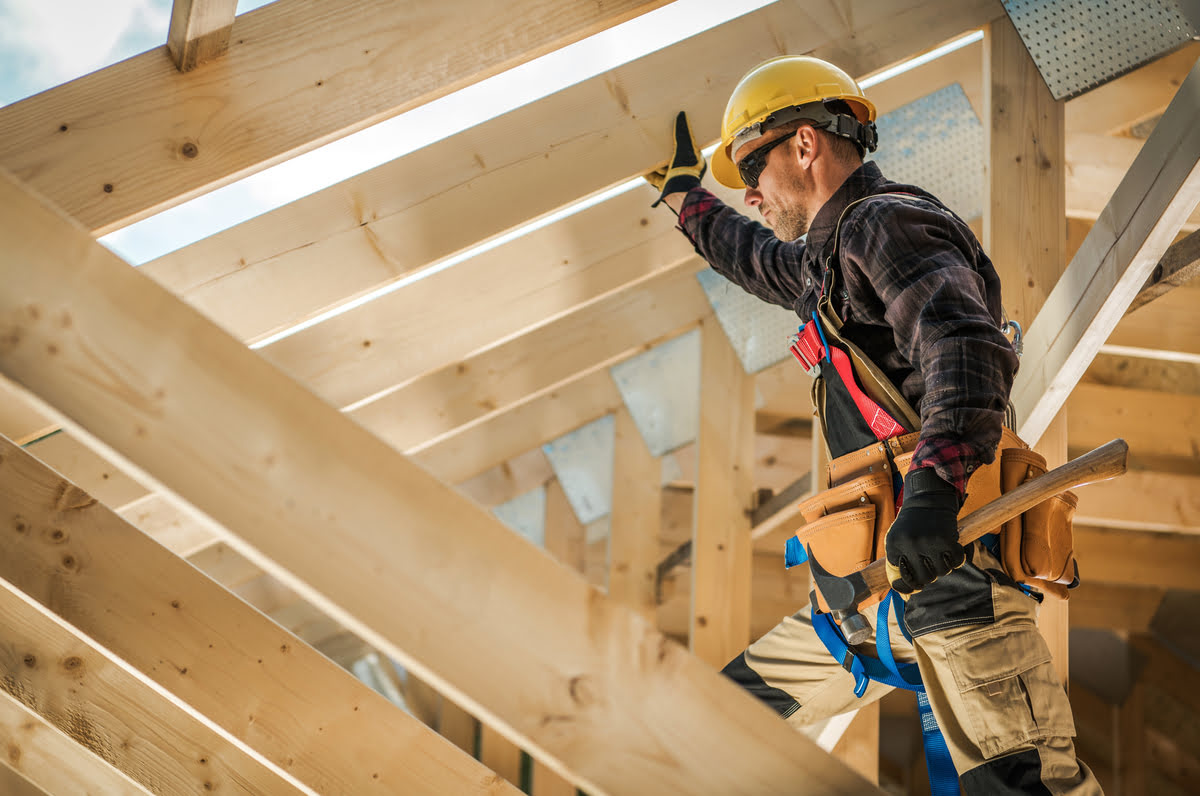
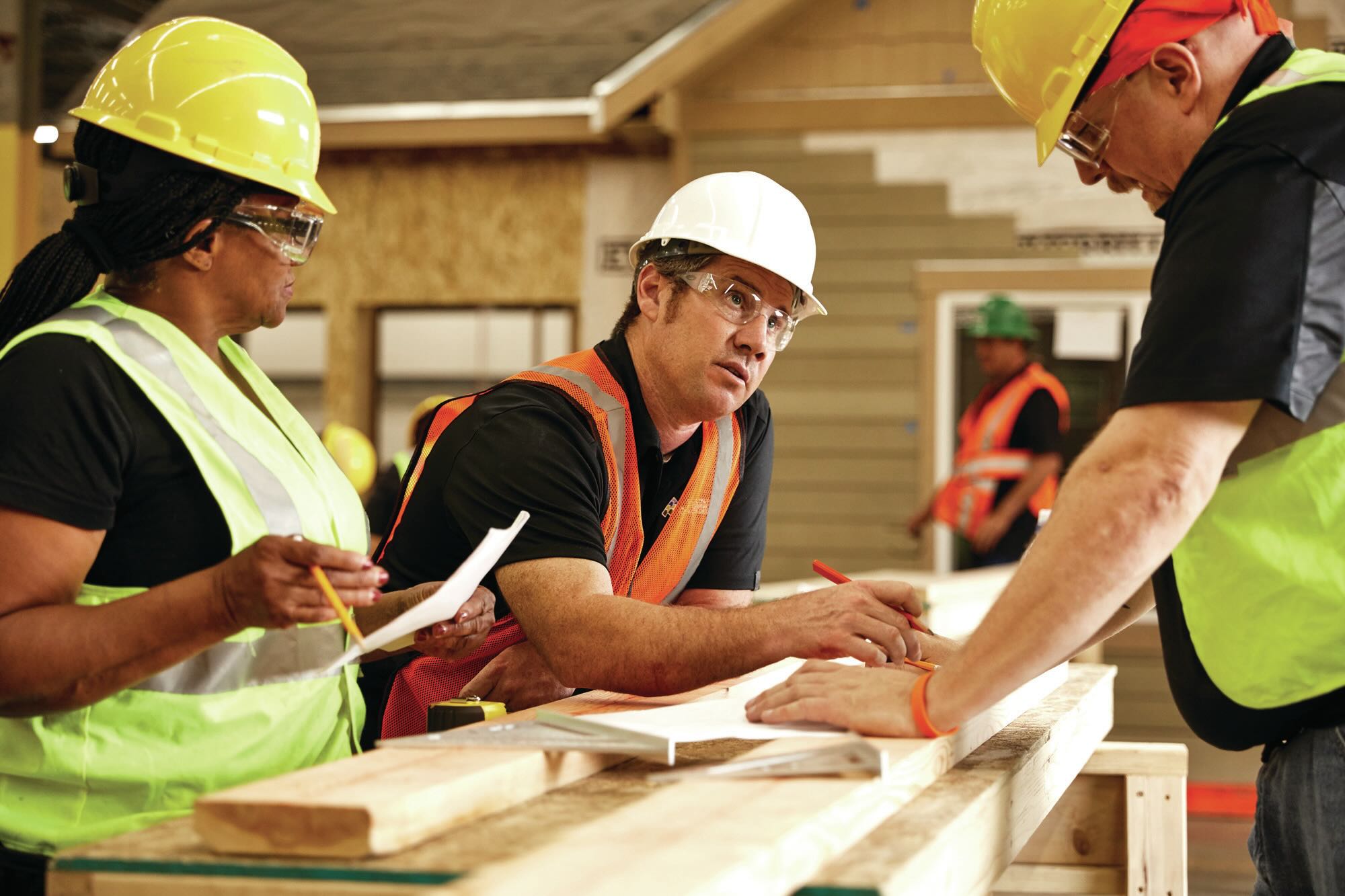
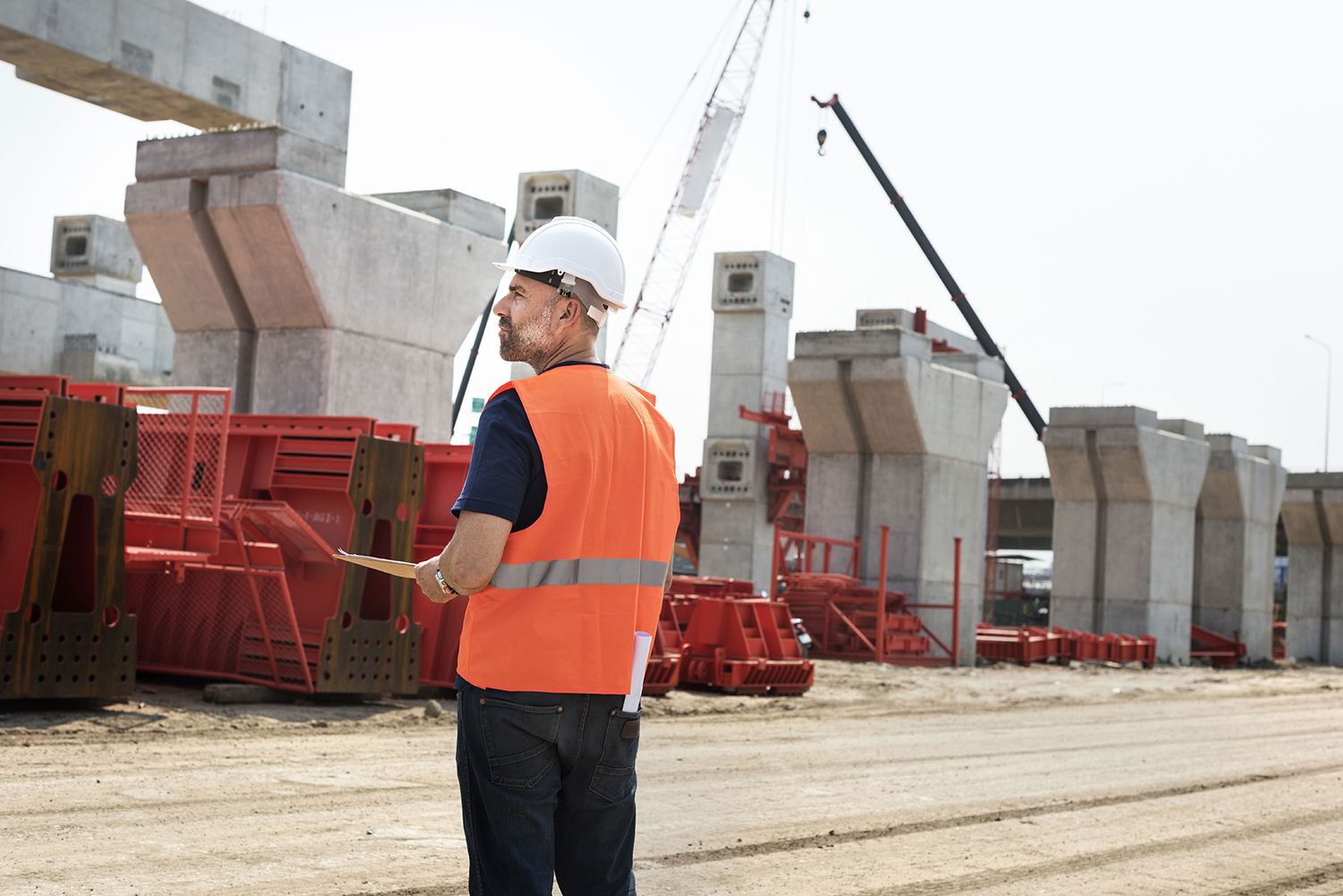



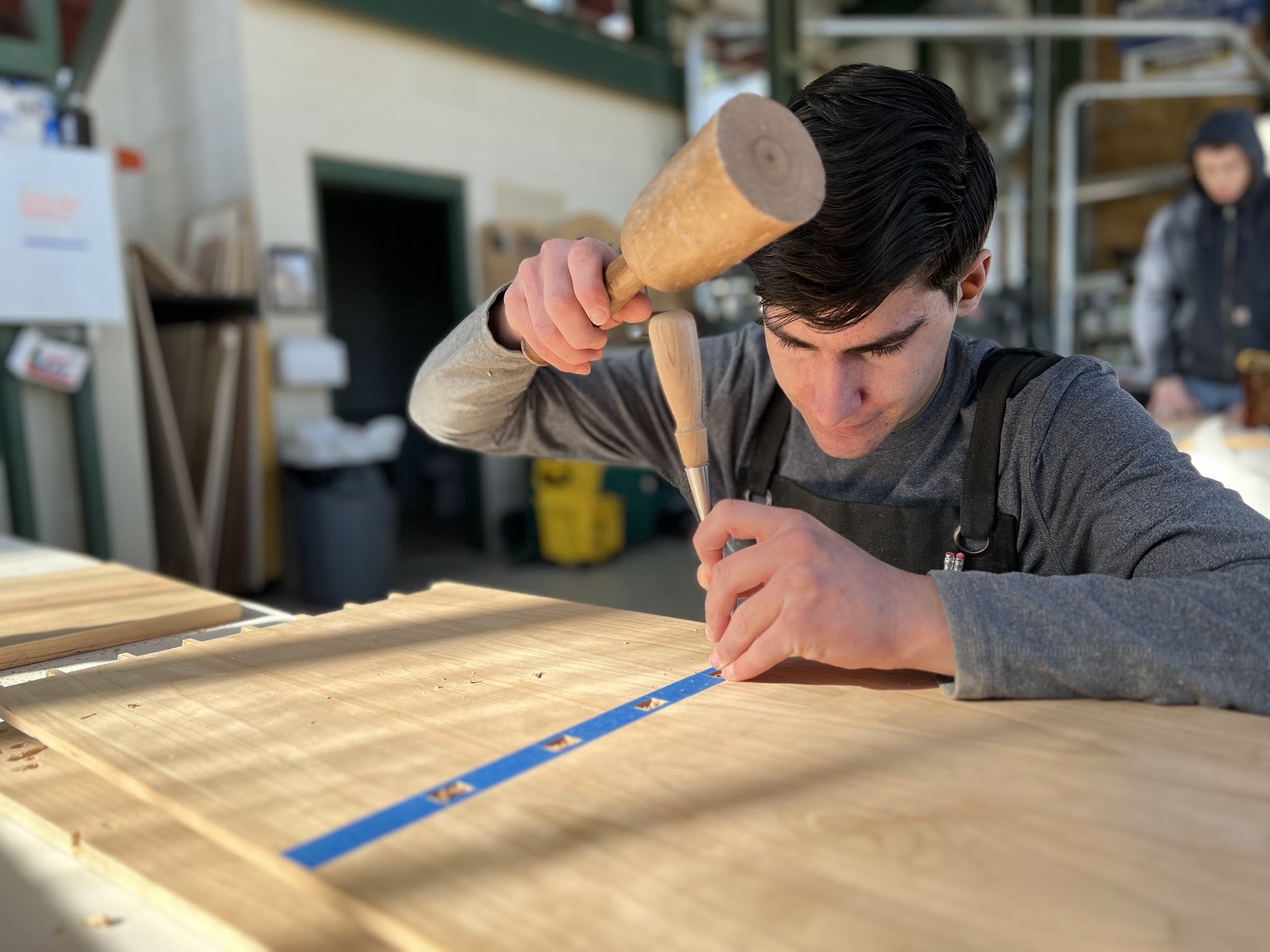

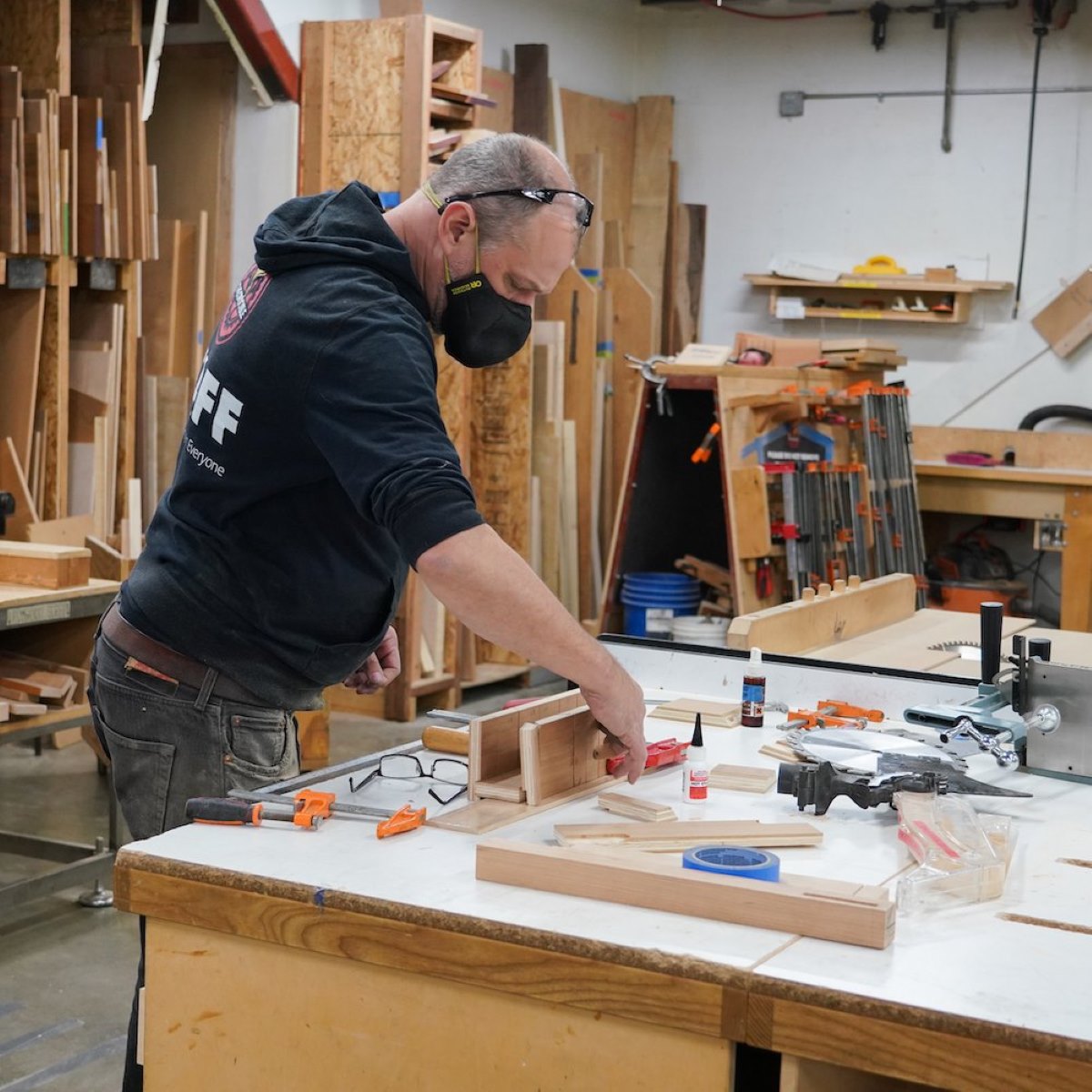





0 thoughts on “How To Learn Construction Trades”